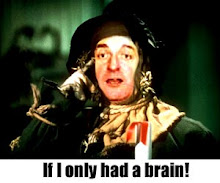Revolutionary Road
Based on a novel by Richard Yates, 'Revolutionary Road' tells of a hip young couple who get sucked into suburbia and struggle to find their way out. For 'suburbia' read middle-class comfort, second-rate dreams, social acceptance, ordinary life. Except, as we all know, there is no such thing as ordinary life, it's just a matter of how many throw their lot in with one particular fantasy.
Everyone has an interest in seeing our young couple fail, because if they win they show the lie we have chosen to accept as truth, we end up having to face our own failure. And of course, in an 'insane' society it takes an 'insane' man to tell it as it is which is where Michael Shannon's unhinged mathematician comes in. The art types' less popular fantasy of escaping to Paris and really 'feeling' (and one might argue it's as middle-class and comfortable a fantasy as the more widely held one around them) creates a whispered subculture of neurotics and 'special' people.
This is weighty stuff and, as a friend of mine, Jules, put it, it's a story that could happen at any time, not just in the 50/60s American milieu in which it is set. Obviously that particular era when the US was struggling to escape the conforming grasp of Eisenhower's 50s throws it all into relief, but Jules was right, it's a timeless story.
Timeless or not, I feel it would never have happened had the studios not seen the success of TV's 'Mad Men', but it stands on its own. The suits are the same, the suburbia/city divide is there with the morning train commutes and secretarial affairs, but it is in the service of a that familiar, but resonant, story. The movie itself though is not without its faults.
The dialogue is often slightly arch. The Wheelers (Di Caprio and Winslet) may be sensitive, arty types, but you can be too literary. Winslett has been lauded, but I didn't find her as convincing as in 'The Reader'. Di Caprio seems to have found his muse when working with Nicholson in 'The Departed' and I for one saw some incongrous mannerisms borrowed from the great Grinner. He's still solid though and probably deserves more credit than he's received. The soundtrack though is very annoying. Thomas Newman seems to have knocked his jaded score together from some odds and ends left over from 'Road to Perdition' or 'American Beauty'.
But I suppose I'm quibbling. Mendes' direction is competent and Roger Deakins' weaves his usual magic with the look of it all. It is the story though (and I'm presuming this is in large part due to Yates' original novel) that is strong and ultimately carries us along. Frank Wheeler may be a coward, but he's painfully recognisable. April's desperation is real. As a couple they sum up too much of what makes us modernly human.
Labels: Film


0 Comments:
Post a Comment
<< Home